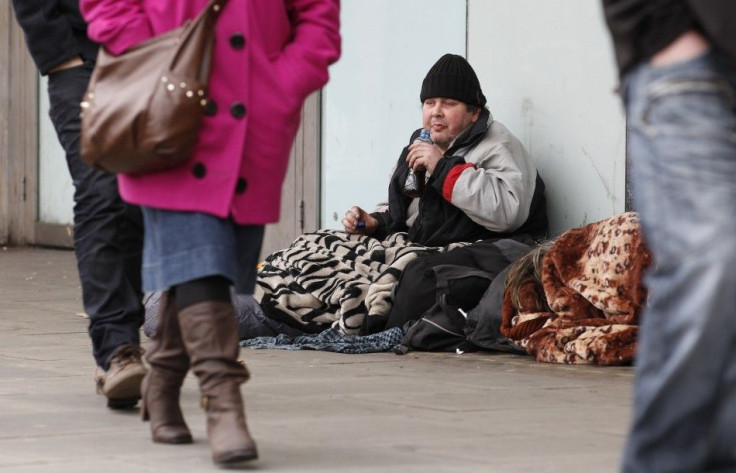Homelessness Cut Life Expectancy by 30 Years: Study

Homelessness can cut a person’s life expectancy by as many as three decades, according to a new British study.
A report from the UK charity Crisis/University of Sheffield indicated that the average life expectancy for a homeless person in Britain is only 47 years, about thirty years less than the national average of 77.
Even more shocking, the average life span for a homeless woman is only 43 years.
One-third of all the deaths among the homeless, the study noted, are caused by drug and alcohol abuse.
The study included people who live and sleep on the streets, but also those who reside in shelters and hostels.
In addition, the report found that homeless people are nine times more likely than the general population to commit suicide; three times as likely to be killed by traffic; and twice as likely to develop deadly infections.
It is shocking, but not surprising, that homeless people are dying much younger than the general population, said Leslie Morphy, chief executive of Crisis, in a statement.
Life on the streets is harsh and the stress of being homeless is clearly taking its toll.
The study suggests that the National Health Service (NHS) is failing to meet the needs of the indigent and homeless.
Morphy added: ”This report paints a bleak picture of the consequences homelessness has on people's health and well-being. Ultimately, it shows that homelessness is killing people. Homeless people are amongst the most vulnerable in our society and it is clear that despite significant investment in the NHS they are not getting the help they need to address their health issues. Government must do more to improve the health of single homeless people and ensure they can access mainstream and specialist services.”
The grim report was released just before an expected announcement that the UK government will spend £20-million to help single people on the brink of losing their homes.
But this alone is not enough,” Morphy commented.
“We need to prevent single people becoming homeless in the first place. It is a shocking fact that in the 21st century there is still no right to shelter and that a single homeless person can approach their council for help and be turned away to sleep on the streets. With homelessness rising, government must act now and change the law to ensure that help is available to all homeless people who need it when they need it.
A spokesman for the Department of Health told BBC: We know that many homeless people have acute and often multiple health needs. That is why we have established the Inclusion Health program, which focuses on improving access to healthcare, and the results it achieves, for vulnerable groups such as rough sleepers.
However, interestingly, according to Poverty.org.uk, the number of newly homeless households in Britain has fallen by about two-thirds since peaking in 2003.
In 2010, 61,000 households were officially recognized as newly homeless by their local councils. In 2003, that figure amounted to 202,000.
© Copyright IBTimes 2024. All rights reserved.





















